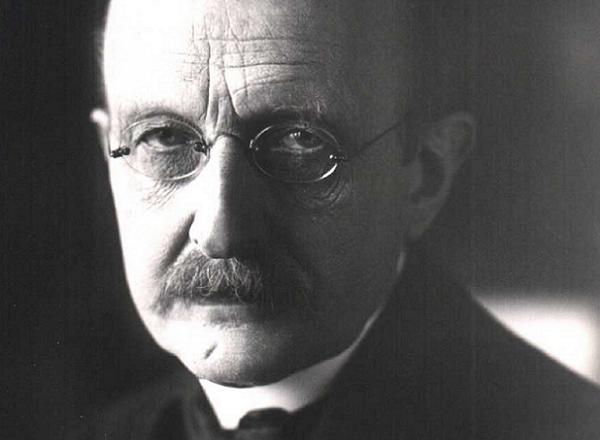Max Planck, German physicist considered to be the father of Quantum theory.
Early life
Max Planck was born on April 23, 1858 in Kiel, Germany, to Johann Julius Wilhelm Planck and Emma Patzig. The marching of Prussian and Austrian troops into Kiel during the Danish-Prussian war of 1864 instigated Planck family to move to Munich. There Planck enrolled in the Maximilians gymnasium school, where he found a new tutor Hermann Muller. Muller taught him astronomy and mechanics as well as mathematics.This is how Planck first came in contact with the field of physics. Planck graduated early, at age 17.
Education
Planck studied at the Universities of Munich and Berlin, where he had the privilege to attend classes of such teachers as Kirchhoff and Helmholtz. Following his doctorate of philosophy at Munich in 1879, He was Privatdozent in Munich from 1880 to 1885, afterwards Associate Professor of Theoretical Physics at Kiel until 1889, in which year he succeeded Kirchhoff as Professor at Berlin University, where he remained until his retirement in 1926.
Achievements
Plancks most important work, one he is most known for is related to quantum theory. Based on experimental observations on the wavelength distribution of the energy emitted by a black body as a function of temperature were at variance with the predictions of classical physics, Planck was able to deduce the relationship between the energy and the frequency of radiation.
In a paper published in 1900, he announced his derivation of the relationship: this was based on the revolutionary idea that the energy emitted by a resonator could only take on discrete values or quanta. The energy for a resonator of frequency v is hv where h is a universal constant, now called Planck’s constant. This discovery made such an impact on modern day physics and science in general. It also won Planck a world wide acceptance and a Nobel prize in 1918.
Later life
Plancks life was filled out with tragedy. He lost his wife with whom he had five children in 1909. One of his sons was executed as a member of a group that potted the assassination of Hitler in 1944. Planck was especially struck by loss of his son and never really recovered. Max Planck died him self in Göttingen on October 4, 1947.
Max Planck quotes
- “Ego is the immediate dictate of human consciousness.”
- “No burden is so heavy for a man to bear as a succession of happy days.”
- “An important scientific innovation rarely makes its way by gradually winning over and converting its opponents: What does happen is that the opponents gradually die out.”

